On September 26, 1983, Soviet officer Stanislav Petrov was on duty monitoring a warning system for nuclear attacks when his computer alerted him that the United States had just launched five missiles toward the U.S.S.R. — and he had only moments to decide if it was a false alarm.
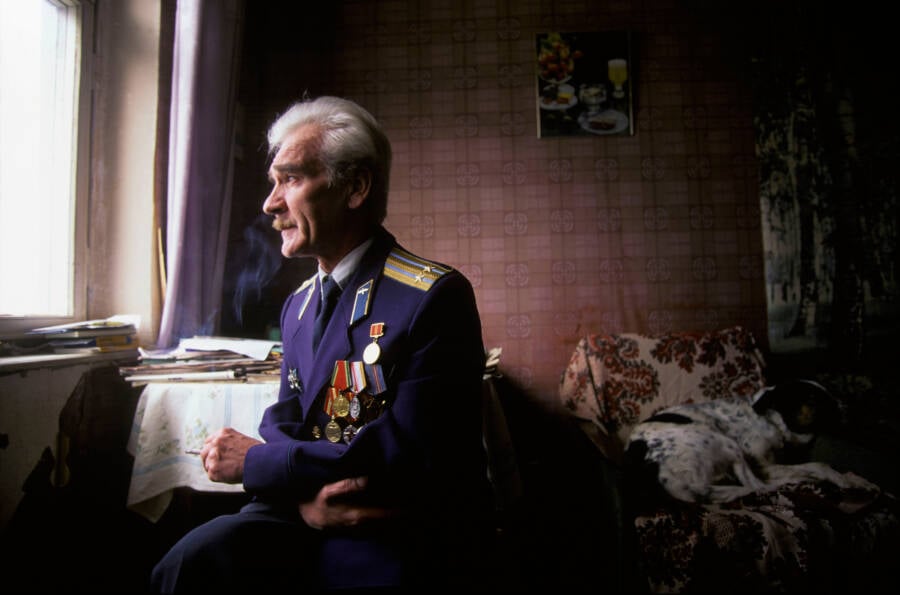
Nikolai Ignatiev / Alamy Stock PhotoStanislav Petrov, the Soviet officer who may have prevented a nuclear war.
Few people know just how close the world came to a nuclear war better than Stanislav Petrov.
On Sept. 26, 1983, Petrov was a few hours into his shift as the duty officer at Serpukhov-15, the secret command center outside of Moscow that monitored incoming missile attacks. Suddenly, the alarms went off, warning that five intercontinental ballistic missiles had been launched from a base in the United States.
Petrov had just moments to decide what to do. If he followed protocol and alerted his superiors about the warning, they would likely fire retaliatory strikes. Cold War tensions were especially high at the time, and the exchange may have resulted in full-out world war.
However, Petrov had a gut feeling that the alert was a false alarm. He chose to wait and see what happened. His decision would change the course of history — and make him known as “the man who saved the world.”
The Early Life And Military Career Of Stanislav Petrov
Born in Vladivostok in 1939, Stanislav Petrov was raised to follow in the footsteps of his father, who fought in World War II. He enlisted in the Soviet Air Defence Forces in the early 1970s, and he ultimately rose to the rank of lieutenant colonel. Petrov’s roles included monitoring the new early warning system that detected ballistic missile attacks from enemy countries, including the U.S.
During Petrov’s time in the military, Cold War tensions rose to terrifying heights. In 1983, President Ronald Reagan had refused to freeze the arms race. The Soviet Union had been declared an “evil empire,” and its leader, Yuri Andropov, was constantly afraid of an attack by the Americans.
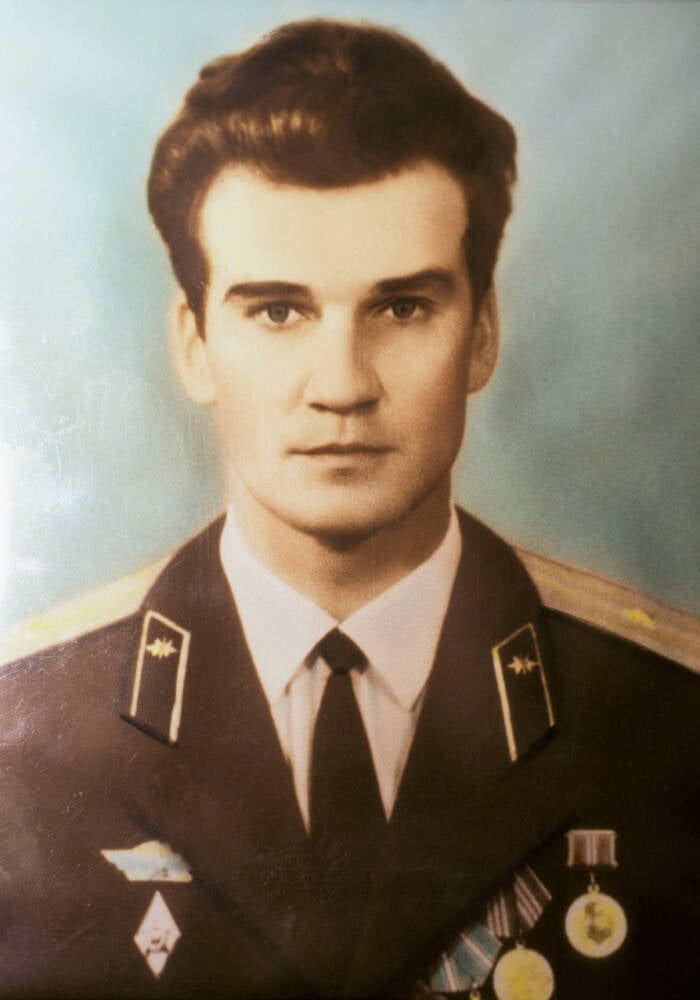
Nikolai Ignatiev / Alamy Stock PhotoA young Petrov in his military attire.
Then, on Sept. 1, 1983, Soviet missiles shot down a civilian aircraft flying from Alaska to South Korea, killing all 269 people on board. The U.S.S.R. claimed that the plane was gathering intelligence, but it had simply strayed from its flight path due to a navigational error. The incident garnered harsh criticism from the rest of the world.
Because of this, an enemy attack wouldn’t have been a complete shock to the Soviets. However, when Stanislav Petrov saw an alert that five missiles were inbound to the U.S.S.R. just three weeks later, he hesitated.
It was standard protocol to report these warnings to his superiors, who would then make a decision about whether or not to retaliate. Petrov had to quickly decide whether to follow commands and risk setting off an irreversible chain reaction.
And so he decided.
The Fateful Decision Of ‘The Man Who Saved The World’
As sirens blared and the word “Launch” flashed across the screen in front of him, Stanislav Petrov weighed his options. Outwardly, he was calm, but a battle was raging inside him.
On one hand, the computers insisted that the reliability of the warning was at the highest level. There were more than two dozen security levels in place to prevent false alarms, and Petrov wasn’t even sure it was possible for them all to fail.
“We built the system to rule out all possibility of false alarms,” he told TIME in 2015. “And that day the satellites told us with the highest degree of certainty that these rockets were on the way.”
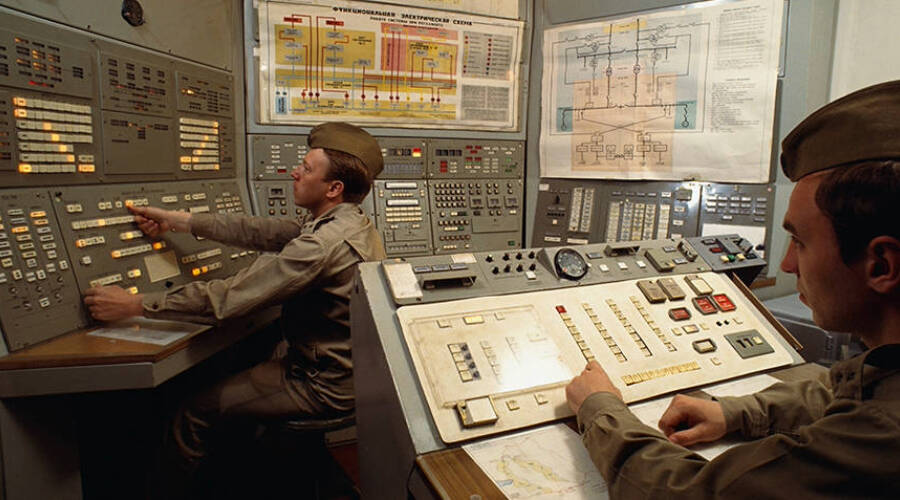
Robert Wallis/Getty ImagesThe control room at a nuclear missile base outside of Moscow, similar to the base Petrov would have served in.
However, Petrov also had a gut feeling that something was wrong. “When people start a war, they don’t start it with only five missiles,” he told The Washington Post in 1999.
So, Stanislav Petrov decided not to tell anyone else about the alert and instead reported it as a system malfunction. If he was wrong, the missiles would strike without warning, leaving an untold number of Soviets — and possibly even Petrov himself — dead. If he was right, he would prevent a potential nuclear armageddon.
“I thought the chances were 50-50 that the warnings were real,” Petrov recalled to TIME. “But I didn’t want to be the one responsible for starting a third world war.”
When 20 minutes passed and nothing happened, Petrov felt immense relief. He knew then that he had made the correct choice — but it was a choice that impacted the rest of his life.
The Aftermath Of Stanislav Petrov’s Brave Decision
It was ultimately determined that the false alarm occurred when the warning system mistook sunlight reflecting off of clouds for engine exhaust from ballistic missiles.
“Can you imagine?” Petrov later told TIME. “It was as though a child had been playing with a vanity mirror, throwing around the Sun’s reflection. And by chance that blinding light landed right in the center of the system’s eye.”
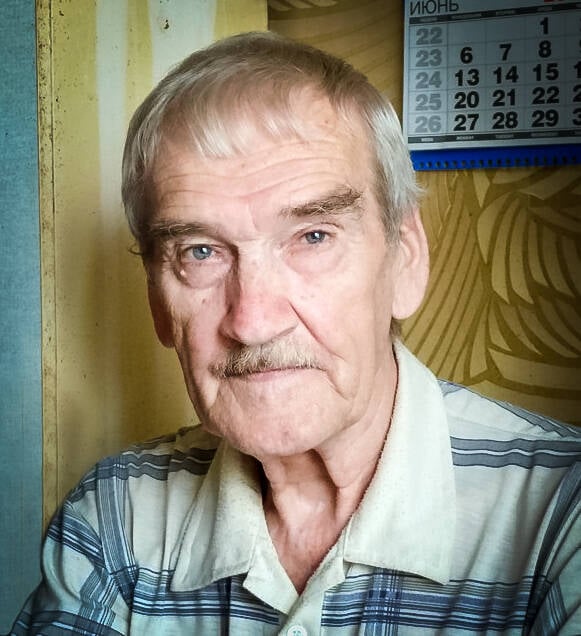
Queery-54/Wikimedia CommonsStanislav Petrov in 2016, shortly before his death.
Despite the fact that Petrov had likely averted nuclear war, however, he wasn’t awarded for his heroic actions. Instead, he was denied a promotion and reassigned. The officers investigating the incident chastised him for not properly logging every moment. When they asked Petrov why he hadn’t written down each detail, he responded, “Because I had a phone in one hand and the intercom in the other, and I don’t have a third hand.”
The Soviet Union kept the near-miss covered up for a decade, but after the country collapsed in 1991, he ultimately spoke out about his experience and was deemed a hero.
In 2004, Petrov received the World Citizen Award for “the part he played in averting a catastrophe.” Then, in 2006, he was honored at the United Nations. Petrov also received the Dresden Peace Prize in 2013. What’s more, Danish filmmakers produced a documentary about his life titled The Man Who Saved the World.
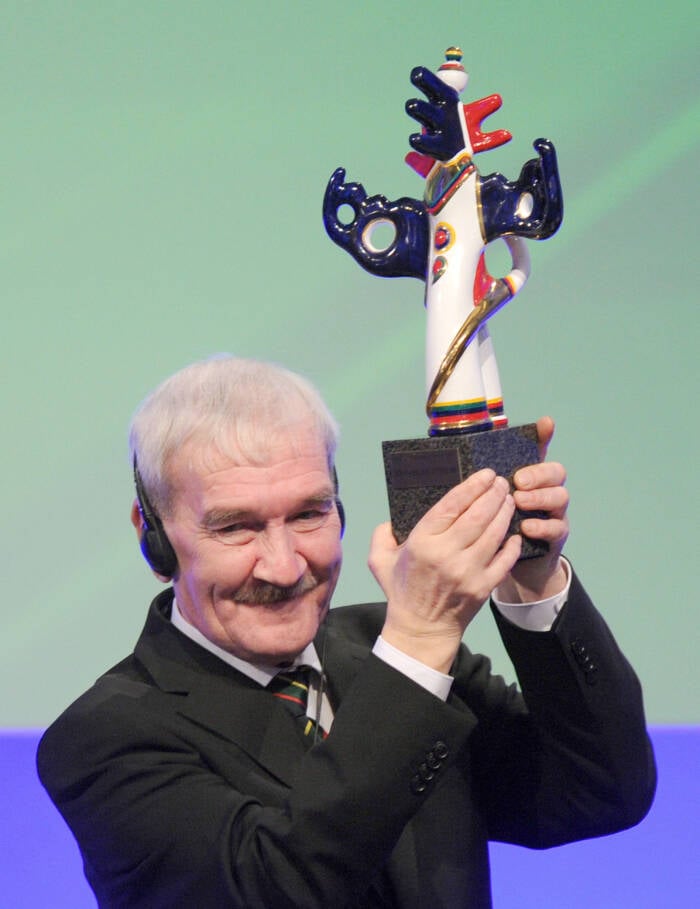
dpa picture alliance archive / Alamy Stock PhotoStanislav Petrov poses after receiving the German Media Prize in 2011.
Despite these honors, Stanislav Petrov maintained that he didn’t deserve the spotlight. However, he also acknowledged that someone else in his position may have made a different decision. Chillingly, Petrov wasn’t supposed to be on duty the night of Sept. 26, 1983. He was filling in for an officer who had fallen ill.
“I was just in the right place at the right time,” he said.
Stanislav Petrov died in Moscow on May 19, 2017, at the age of 77. In an interview with Radio Free Europe later that year, his son, Dmitry, recalled his reaction to learning that his father was known as the man who saved the world.
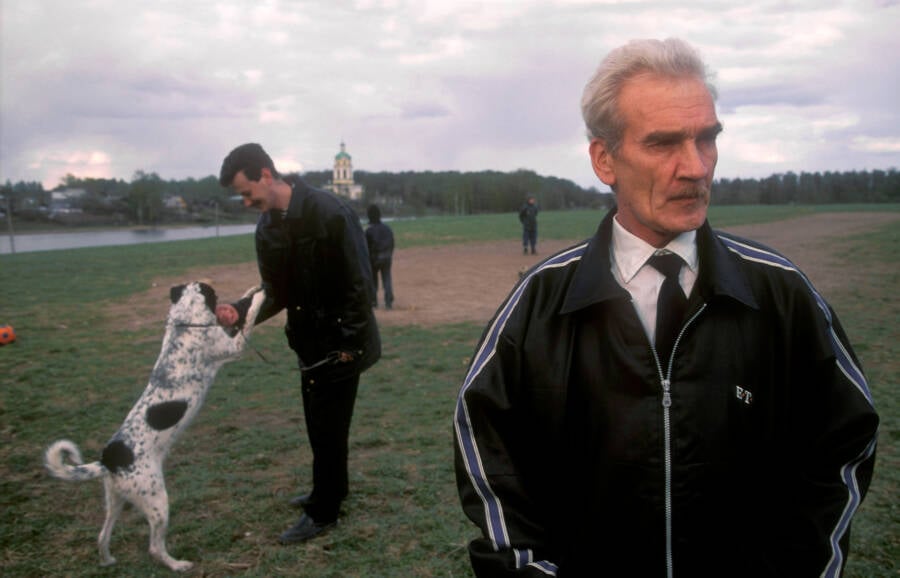
Juliet Butler / Alamy Stock PhotoStanislav Petrov outside his apartment building in Moscow with his son Dmitry and their family dog.
“Of course, I was overcome by horror at what could have happened,” Dmitry Petrov said. “I was of course extremely surprised to learn what happened, and that he was silent about it. Obviously, he couldn’t say anything about it… at that moment when the world literally was hanging by a strand of hair.”
Like his father before him, Dmitry was reserved and humble when speaking about the incident that could have changed history: “He was doing his work and he never considered himself… a hero, he was simply doing his job. That’s all.”
After reading about Stanislav Petrov, the “man who saved the world,” check out these Soviet propaganda posters. Then, read about the death of Vladimir Komarov, the cosmonaut whose space capsule smashed into Earth.





